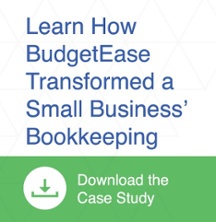 There are a lot of moving parts to the Families First Coronavirus Response Act (“FFCRA”), which took effect on April 1, 2020 and runs through December 31, 2020. Below are some key points and guidance for you and your small business.
There are a lot of moving parts to the Families First Coronavirus Response Act (“FFCRA”), which took effect on April 1, 2020 and runs through December 31, 2020. Below are some key points and guidance for you and your small business.
The FFCRA does several things. Three items we feel are very important are:
- Expansion of the Family and Medical Leave Act (until December 31, 2020) to cover leave and loss of income when an employee needs to care for children (ages 17 and under) due to school closures as a result of COVID-19.
- Allows for two weeks of paid sick leave for childcare and other leave related to the coronavirus.
- Provides tax credits related to the paid leave mandated by the Act.
The Families First Coronavirus Response Act covers all private employers with fewer than 500 employees (with potential exemptions for small businesses with less than 25 employees).
Two Categories of Leave
- Paid Sick Leave – Employees are eligible for up to two weeks, or 10 days, of paid sick leave, subject to an 80-hour cap for full-time employees.
- Expanded Family and Medical Leave – After taking two weeks paid sick leave, employees who have been employed for at least 30 days may be eligible for up to an additional 10 weeks of partially paid expanded family and medical leave.
Small Business Exemptions
Businesses with fewer than 50 employees may qualify for exemption from the requirement (to provide leave due to school closings or unavailability of childcare) if the leave requirements would jeopardize the viability of the business as a going concern.
We expect The U.S. Department of Labor will issue additional details on the small business exemption soon. At this time, we advise small business owners wishing to seek the exemption to document why their business meets such criteria.
Paid Sick Leave Eligibility
All employees of private employers with 500 employees or less, regardless of how long they’ve been employed, are eligible for up to 10 days of emergency paid sick leave. Employees will be eligible if they are unable to work (or telework) due to:
- A quarantine or isolation order related to COVID-19.
- The employee has been advised by a health care provider to self-quarantine due to concerns related to COVID-19.
- The employee is experiencing symptoms of COVID-19 and seeking a medical diagnosis.
- The employee is caring for an individual who is subject to quarantine or has been advised by a health care provider to self-quarantine related to COVID-19;
- The employee is caring for a child (age 17 or younger) whose school or place of care has been closed, or the childcare provider of such son or daughter is unavailable, due to COVID-19 precautions.
Please note that if a business decides to close or cancel work shifts for business reasons (i.e., lack of work), neither emergency paid sick leave nor expanded family leave will apply as they are available only to employees who are not working due to the specified reasons listed above.
Employee Earning Rates:
|
Type of Leave |
Required Compensation |
|
Employee Emergency Sick Leave |
|
|
Full-Time Employee |
100% of pay, up to $511 per day or $5,110 for two weeks |
|
Part-Time Employee |
Average hours worked of two-week period |
|
Sick Leave to Care for Others |
|
|
Full-Time Employee |
Two-thirds (or 66.67%) of pay, up to $200 per day or $2,000 for two weeks |
|
Part-Time Employee |
Average hours worked of two-week period |
|
Expanded Family Leave |
|
|
Full-Time Employee |
Unpaid for first 10 days (unless Employee uses PTO or Emergency Sick Leave). On the 11th and onward, pay is 66.67% up to $200 per day for up to 12 weeks. |
Overlapping Leave Laws and Employer PTO
The FFCRA prohibits employers from requiring an employee to exhaust accrued paid time off (PTO) or state/local paid sick leave. Employees are entitled to utilize federal emergency paid sick leave before using state or local paid sick leave or accrued employer-offered PTO.
The Good News - Employer Reimbursement for Leave
Employers will receive 100% reimbursement for wages, health insurance costs, and payroll tax liability associated with the Act. Reimbursements will be an immediate, dollar-for-dollar tax offset against payroll taxes.
Contact us at www.budgetease.biz to find out how we can help you navigate this challenging time.






